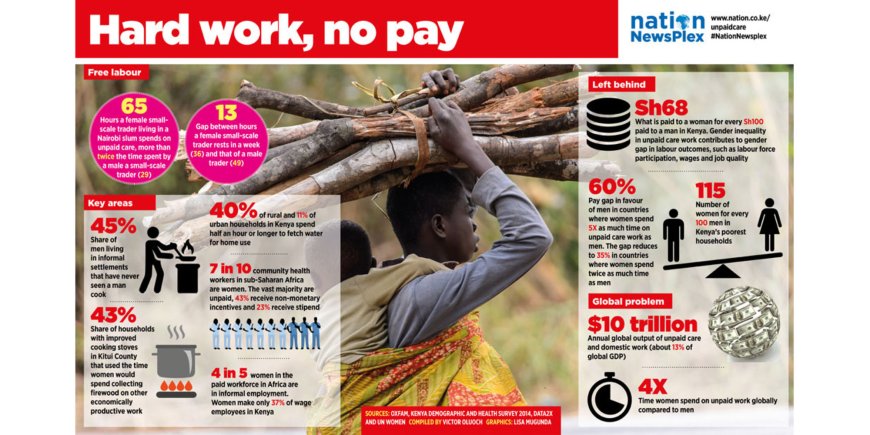The Invisible Load: Unpaid Domestic Work and Its Impact on Women
Discuss the disproportionate burden of unpaid domestic work on women and its economic implications. Explore insights from The World’s Women 2020 report.

In the quiet corners of homes around the world, a different kind of labor unfolds, often unnoticed and unappreciated. This is the invisible load of unpaid domestic work, a burden that disproportionately falls on women. The World’s Women 2020: Trends and Statistics paints a stark picture of this reality, highlighting the economic implications of this hidden labor.
Imagine a day in the life of a woman juggling multiple roles – a professional, a caregiver, a homemaker. From dawn to dusk, her day is a whirlwind of activities, from preparing meals and managing household chores to caring for children and elderly family members. This unpaid labor, though essential, often goes unrecognized and undervalued.
Globally, women spend about three times as many hours on unpaid domestic and care work as men. This lopsided distribution of labor not only limits women’s economic potential but also has significant mental health implications. The constant juggling act can lead to burnout and stress, affecting women’s overall well-being.

In Kenya, the situation is no different. Women here bear the brunt of unpaid domestic work, which significantly impacts their ability to participate in the labor market. The World’s Women 2020 report highlights that this unequal burden is a major barrier to gender equality. It calls for policies that recognize and redistribute unpaid domestic work, ensuring that women have equal opportunities to thrive in both their personal and professional lives.
The economic implications of unpaid domestic work are profound. By shouldering the majority of household responsibilities, women often have to compromise on their career aspirations. This not only affects their earning potential but also perpetuates the cycle of gender inequality. The report emphasizes the need for systemic changes, including family-friendly policies and support systems that enable women to balance their multiple roles.
As we navigate the complexities of modern life, it’s crucial to acknowledge and address the invisible load carried by women. By recognizing the value of unpaid domestic work and implementing policies that promote gender equality, we can create a more equitable society where women can truly thrive.
What's Your Reaction?














































































































